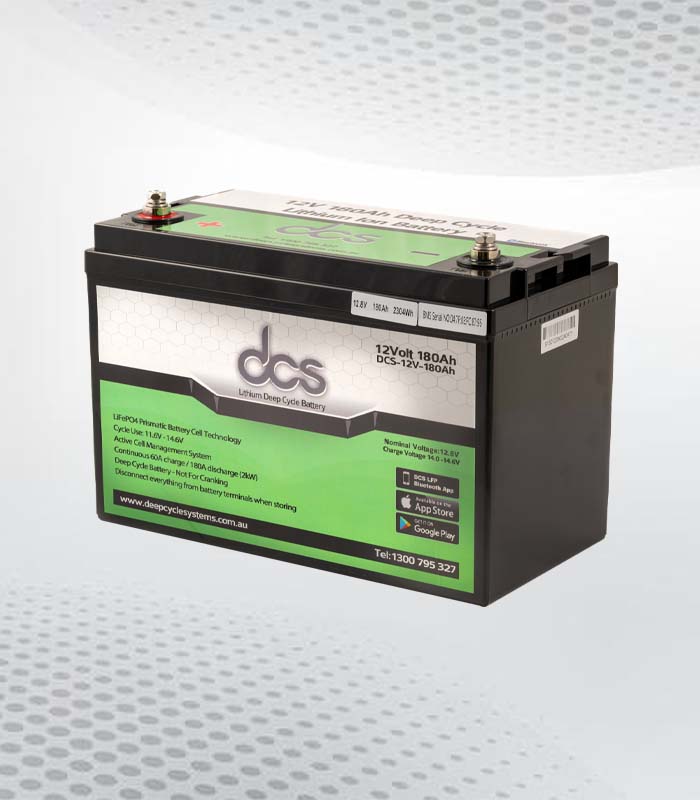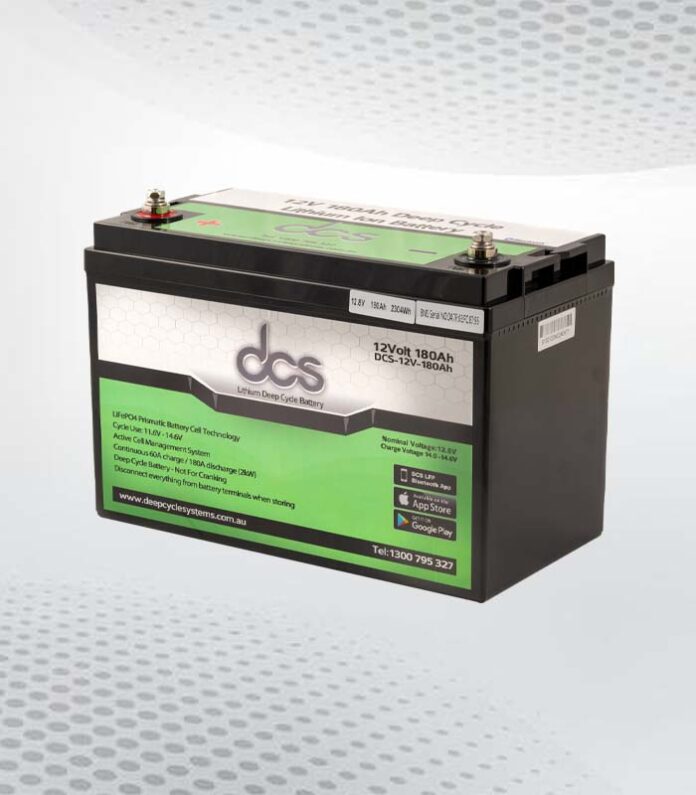When it comes to boating and sailing, having a reliable and efficient power source is crucial. From starting the engine to powering up electronics and amenities, a lithium marine battery is the lifeline of any vessel. However, not all batteries are created equal. In recent years, there has been a surge in the popularity of lithium-marine batteries. These high-tech power sources offer numerous benefits over traditional lead-acid batteries, making them a wise investment for any adventure-seeking boat owner. In this blog post, we will explore the advantages of a marine lithium battery and why it should be considered an essential equipment for your next voyage.
Understanding Marine Batteries: A Brief Overview
When it comes to boating, having a reliable power source is essential. Marine batteries are crucial in starting the engine and powering various electronics and amenities onboard. Understanding the different types of marine batteries available can help boat owners make an informed decision.
There are several types of marine batteries, but the two most common are lead-acid and lithium-marine batteries. Lead-acid batteries have been the go-to choice for many years due to their affordability. However, they have some significant drawbacks. Lead-acid batteries are heavy and bulky, making them difficult to handle and transport. They also have a limited lifespan and require regular maintenance to ensure optimal performance.
On the other hand, lithium-marine batteries are a relatively new and innovative option. These batteries are lightweight and compact and provide superior performance compared to lead-acid batteries. They have a longer lifespan and can withstand deeper discharge cycles without suffering from capacity loss. Lithium-marine batteries also have a faster recharge time, allowing boat owners to spend more time on the water and less time waiting for their batteries to recharge.
 What Sets Lithium Marine Batteries Apart?
What Sets Lithium Marine Batteries Apart?
Lithium-marine batteries are more than just your average power source. They offer a new level of performance and reliability that sets them apart from traditional lead-acid batteries. So, what exactly makes lithium-marine batteries so powerful?
- One of the main advantages of lithium-marine batteries is their energy density. They can store and deliver more power in a smaller and lighter package than lead-acid batteries. This means you can save valuable space on your boat and reduce the overall weight, improving efficiency and performance.
- But that’s not all. Lithium marine batteries also have a much longer lifespan than lead-acid batteries. While lead-acid batteries typically last around 2-3 years, lithium batteries can last up to 10 years or more with proper care and maintenance. This means fewer battery replacements and more time and money saved in the long run.
- Another significant advantage of lithium-marine batteries is their ability to withstand deeper discharge cycles without suffering from capacity loss. This means you can use more of the battery’s capacity without compromising its performance or longevity. Additionally, lithium batteries have a faster recharge time, allowing you to get back on the water sooner.
Evaluating The Investment In A Marine Battery
When investing in a boat battery, it’s essential to consider all factors before making a decision. While the upfront cost of a lithium boat battery may be higher compared to a traditional lead-acid battery, it’s crucial to evaluate the long-term benefits and potential savings that come with it.
- Firstly, let’s consider the lifespan of the battery. A marine battery has a much longer lifespan than a lead-acid battery, lasting up to 10 years or more with proper care and maintenance. This means fewer replacements and more money saved in the long run. Additionally, lithium batteries can withstand deeper discharge cycles without suffering from capacity loss, allowing you to make the most out of your battery’s power.
- Next, let’s talk about the efficiency of a lithium boat battery. These batteries have a faster recharge than lead-acid batteries, reducing downtime and allowing you to get back on the water sooner. This efficiency also translates into improved performance and reliability, ensuring a consistent power source for your boating adventures.
- Furthermore, the compact and lightweight nature of lithium-marine batteries saves valuable space on your boat and reduces overall weight, resulting in improved fuel efficiency and better handling.
Tips For Maintaining Your Lithium Boat battery
Taking proper care of your lithium boat battery is crucial to ensure its optimal performance and longevity. Here are some essential tips to help you maintain your battery and get the most out of your boating experience.
- Firstly, it’s essential to check the charge level of your lithium boat battery regularly. Monitor the battery’s voltage and ensure it is within the recommended range. You can use a battery monitor or voltmeter to measure the charge level accurately. If the voltage is too low, consider recharging the battery to avoid any potential damage.
- Secondly, avoid fully discharging your lithium boat battery whenever possible. While lithium batteries can handle deeper discharge cycles, it’s still best to keep them above 20% charge to maximize their lifespan. Regularly monitor the battery’s charge level and recharge it before it reaches a critically low point.
- Another tip for maintaining your lithium boat battery is to store it properly during the off-season. Ensure the battery is fully charged before storing it, and keep it in a cool and dry place. Avoid exposing the battery to extreme temperatures or humidity, which can affect its performance and longevity.
- Lastly, follow the manufacturer’s recommendations for maintenance and care. Each lithium boat battery may have specific guidelines for charging, storage, and maintenance. Read the user manual carefully and follow the instructions to ensure you’re properly taking care of your battery.
The Environmental Benefits Of Choosing A Lithium Boat battery
As boating enthusiasts, we need to consider the environmental impact of our choices. Regarding marine batteries, opting for a lithium boat battery is a great way to minimize our carbon footprint and contribute to a greener future.
One of the key environmental benefits of choosing a lithium boat battery is that it contains no toxic materials. Unlike traditional lead-acid batteries, which use lead and sulfuric acid, lithium batteries are free from these harmful substances. This means that when it’s time to dispose of your old battery, you can do so without worrying about contaminating the environment.
In addition to being free of toxic materials, lithium-marine batteries are also more energy efficient. They have a higher charge retention, which means that they can hold onto their power for longer periods of time. This leads to less energy waste and more efficient use of your battery’s capacity. With a lithium battery, you’ll be able to enjoy longer periods of boating without needing to recharge as frequently.
Why You Can Trust Lithium-marine batteries For Your Boating Needs?
When it comes to trusting a power source for your boating needs, lithium-marine batteries are a top choice. These high-tech batteries offer a level of reliability and performance that makes them a trusted and dependable option for any adventure-seeking boat owner.
First and foremost, lithium-marine batteries are known for their exceptional longevity. With proper care and maintenance, these batteries can last up to 10 years or more, far outlasting traditional lead-acid batteries. This means fewer replacements and more money saved in the long run.
In addition to their long lifespan, lithium-marine batteries also offer superior performance. They have a higher energy density, allowing them to store and deliver more power in a smaller and lighter package compared to lead-acid batteries. This means you can save valuable space on your boat and reduce overall weight, resulting in improved efficiency and performance.
Comparing Lithium-marine batteries To Traditional Options
When it comes to choosing a boat battery, the decision often comes down to traditional options like lead-acid batteries or the innovative choice of lithium-marine batteries. Let’s compare these two options to help you make an informed decision for your boating needs.
Firstly, let’s look at the weight and size. Lead-acid batteries are known for being heavy and bulky, which can be a hassle to handle and transport. On the other hand, lithium-marine batteries are lightweight and compact, allowing you to save space on your boat and reduce overall weight. This can result in improved fuel efficiency and better handling.
Next, let’s consider the lifespan. Lead-acid batteries typically last around 2-3 years, requiring frequent replacements and maintenance. In contrast, lithium-marine batteries can last up to 10 years or more with proper care, meaning fewer replacements and more money saved in the long run.
Lithium Boat battery Safety Precautions And Best Practices
When it comes to using a lithium boat battery, safety should always be a top priority. These powerful batteries require proper handling and care to ensure they operate safely and efficiently. Here are some important safety precautions and best practices to keep in mind when using a lithium boat battery.
- Proper Installation: Follow the manufacturer’s instructions for installing the battery. Make sure all connections are secure and properly insulated to prevent any electrical issues.
- Avoid Overcharging: Overcharging a lithium battery can cause overheating and potential damage. Use a charger specifically designed for lithium batteries and avoid leaving the battery connected to the charger for extended periods of time.
- Temperature Considerations: Lithium batteries are sensitive to extreme temperatures. Avoid exposing the battery to excessive heat or cold, as it can affect performance and lifespan. Store the battery in a cool, dry place when not in use.
- Avoid Deep Discharge: While lithium batteries can handle deeper discharge cycles, it’s best to avoid fully discharging them whenever possible. Regularly monitor the battery’s charge level and recharge it before it reaches a critically low point.
- Regular Inspections: Periodically inspect the battery for any signs of damage or wear. Look for bulging or leaking, which may indicate a problem. If you notice any issues, stop using the battery and consult a professional.
- Proper Disposal: When it’s time to replace your lithium boat battery, make sure to dispose of it properly. Follow local regulations and recycling guidelines to ensure it is recycled in an environmentally friendly manner.
FAQs
Q: Are lithium-marine batteries safe to use?
A: Yes, lithium-marine batteries are safe to use when handled and maintained properly. Following the manufacturer’s guidelines for installation, charging, and storage will ensure their safe operation.
Q: How long do lithium-marine batteries last?
A: With proper care and maintenance, lithium-marine batteries can last up to 10 years or more. This is significantly longer than traditional lead-acid batteries, which typically last around 2-3 years.
Q: Can I use a lithium boat battery as a starting battery?
A: Yes, lithium-marine batteries can be used as starting batteries. They provide reliable power to start the engine and power up electronics and amenities onboard.
Conclusion
In this blog post, we’ve explored the advantages of marine lithium batteries and why they should be considered an essential piece of equipment for any boating adventure. We began by understanding the different types of marine batteries, comparing traditional lead-acid batteries to the innovative lithium-marine batteries. We learned that lithium batteries offer superior performance, longevity, and efficiency, making them a smart investment for any boat owner.


